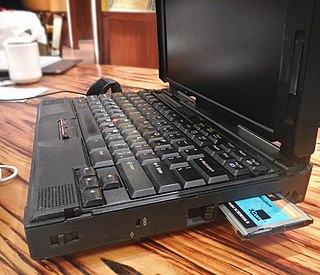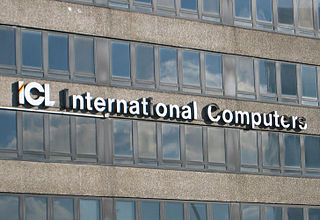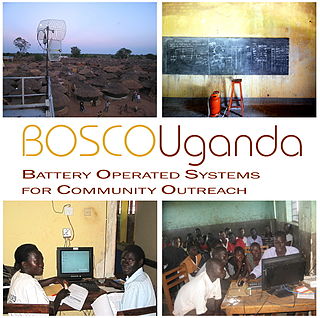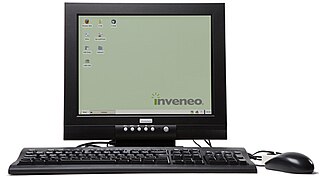Solo computer's plans
Now Fantsuam Foundation is working on a revolutionary solar-powered alternative computer, tailormade for the "developing world".
John Dada of Fantsuam told the Association for Progressive Communications in an interview, "FF had been involved in importation of refurbished PCs for civil society organizations in Nigeria. We soon realized that these PCs were as vulnerable to heat, dust and unreliable power supply as the brand new ones. We found a UK-based design team that was working on a system that addressed these three 'rural tropical' issues."
The Association for Progressive Communications (APC) is an international network of organizations that was founded in 1990 to provide communication infrastructure, including Internet-based applications, to groups and individuals who work for peace, human rights, protection of the environment, and sustainability. Pioneering the use of ICTs for civil society, especially in developing countries, APC were often the first providers of Internet in their member countries.
Civil society can be understood as the "third sector" of society, distinct from government and business, and including the family and the private sphere. By other authors, "civil society" is used in the sense of 1) the aggregate of non-governmental organizations and institutions that manifest interests and will of citizens or 2) individuals and organizations in a society which are independent of the government.
Fantsuam plans to develop this into a small industry that can serve the local population.
"It is our way of bringing cutting edge technology to rural Nigeria, and promoting rural ICT entrepreneurship and associated downstream employment opportunities," says Dada.
Entrepreneurship is the process of designing, launching and running a new business, which is often initially a small business. The people who create these businesses are called entrepreneurs.

A workstation is a special computer designed for technical or scientific applications. Intended primarily to be used by one person at a time, they are commonly connected to a local area network and run multi-user operating systems. The term workstation has also been used loosely to refer to everything from a mainframe computer terminal to a PC connected to a network, but the most common form refers to the group of hardware offered by several current and defunct companies such as Sun Microsystems, Silicon Graphics, Apollo Computer, DEC, HP, NeXT and IBM which opened the door for the 3D graphics animation revolution of the late 1990s.

The Personal Computer Memory Card International Association (PCMCIA) was a group of computer hardware manufacturers, operating under that name from 1989 to 2009/2010. Starting with the eponymous PCMCIA card in 1990, it created various standards for peripheral interfaces designed for laptop computers.
A quiet PC is a personal computer that makes very little, or no noise. Common uses for quiet PCs include video editing, sound mixing and home theater PCs, but noise reduction techniques can also be used to greatly reduce the noise from servers. There is currently no standard definition for a "quiet PC", and the term is generally not used in a business context, but by individuals and the businesses catering to them.

International Computers Limited (ICL) was a large British computer hardware, computer software and computer services company that operated from 1968 until 2002. It was formed through a merger of International Computers and Tabulators (ICT), English Electric Leo Marconi (EELM) and Elliott Automation in 1968. The company's most successful product line was the ICL 2900 Series range of mainframe computers.

Mobile computing is human–computer interaction by which a computer is expected to be transported during normal usage, which allows for transmission of data, voice and video. Mobile computing involves mobile communication, mobile hardware, and mobile software. Communication issues include ad hoc networks and infrastructure networks as well as communication properties, protocols, data formats and concrete technologies. Hardware includes mobile devices or device components. Mobile software deals with the characteristics and requirements of mobile applications.
The Jhai Foundation is a non-profit organisation working mainly in Laos.
Green computing, green ICT as per International Federation of Global & Green ICT "IFGICT", green IT, or ICT sustainability, is the study and practice of environmentally sustainable computing or IT.
Apple's Intel Transition was the process of changing the Central Processing Unit (CPU) of Macintosh computers from PowerPC processors to Intel x86 processors. The transition became public knowledge at the 2005 Worldwide Developers Conference (WWDC), when Apple's CEO Steve Jobs made the announcement that the company would make a transition from the use of PowerPC microprocessors supplied by Freescale and IBM in its Macintosh computers, to processors designed and manufactured by Intel, a chief supplier for most of Apple's competitors.

An industrial PC is a computer intended for industrial purposes, with a form factor between a nettop and a server rack. Industrial PCs have higher dependability and precision standards, and are generally more expensive than consumer electronics. They often use complex instruction sets, such as x86, where reduced instruction sets such as ARM would otherwise be used.
The Classmate PC, formerly known as Eduwise, is Intel's entry into the market for low-cost personal computers for children in the developing world. It is in some respects similar to the One Laptop Per Child (OLPC) trade association's Children's Machine (XO), which has a similar target market. Although made for profit, the production of the Classmate PC is considered an Information and Communication Technologies for Development project. The device falls into the then popular category of netbooks.
The VIA pc-1 Initiative is a project of VIA Technologies, established in January 2005, to help bridge the digital divide by developing information and communication technology (ICT) systems to benefit those who currently do not have computers or Internet access.

Computer Aid International is a not-for-profit organisation active in the field of Information and Communication Technologies for Development. A registered charity, Computer Aid was founded in 1996 to bridge the digital divide by providing refurbished PCs from the UK to educational and non-profit organisations in developing countries.

Intel Active Management Technology (AMT) is hardware and firmware technology for remote out-of-band management of personal computers, running on the Intel Management Engine, a separate microprocessor not exposed to the user, in order to monitor, maintain, update, upgrade, and repair them. Out-of-band (OOB) or hardware-based management is different from software-based management and software management agents.

BOSCO-Uganda is a private, non-profit effort to put wireless internet and VoIP telephony into the internally displaced persons camps of northern Uganda, in cooperation with the Archdiocese of Gulu. BOSCO collaborated with Inveneo to place their low-power PCs powered by solar panels in the Catechist Training Center and the Caritas Office in Gulu, as well as at schools, hospitals, colleges and Churches in the Pabbo, Alero, Lacor, Coope, Jen'Geri, Unyama, and Pagak IDP camps. The organization aims to use ICT to help end the isolation of communities in rural northern Uganda as well as improve education, economics, human rights documentation, health care and rural development.

Inveneo is a 501(c)(3) non-profit organization based in San Francisco with focus on Information and Communication Technologies for organizations supporting underserved communities in the developing world, mostly in Africa. The organization has developed an ultra low-powered computer, called the Inveneo Computing Station, as well as a VoIP-enabled unit called the Inveneo Communication Station, and a hub server, all of which are designed to run on a 12-volt power supply. The Inveneo Computing and Communication Stations were originally based on a reference design ION A603 mini PC by First International Computer and run AMD Geode CPU.

A personal computer (PC) is a multi-purpose computer whose size, capabilities, and price make it feasible for individual use. Personal computers are intended to be operated directly by an end user, rather than by a computer expert or technician. Unlike large costly minicomputer and mainframes, time-sharing by many people at the same time is not used with personal computers.

RM Education is the principal division of the RM Group, a British company that specialises in providing information technology products and services to educational organisations and establishments. Its key market is UK education including schools, colleges, universities, government education departments and educational agencies.

Microsoft Tablet PC is a term coined by Microsoft for tablet computers conforming to a set of specifications announced in 2001 by Microsoft, for a pen-enabled personal computer, conforming to hardware specifications devised by Microsoft and running a licensed copy of Windows XP Tablet PC Edition operating system or a derivative thereof.
Computer technology for developing areas is often through the donation of technologyand losses in a to developing areas in our mind for this best developing area in a education our best in this field without thought for access to electricity or equipment maintenance. Many institutions, government, charitable, and for-profit organizations require technology development often involving hardware or software design, and the coordination of donors, distributors, and deployers. Technical development overlaps with the fields of technical training, maintenance and support.















